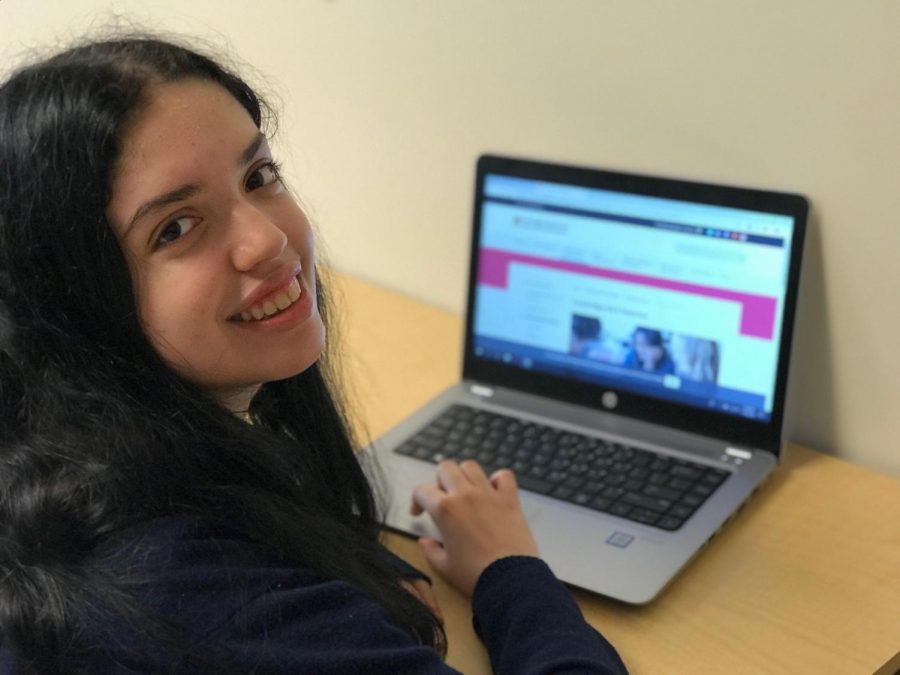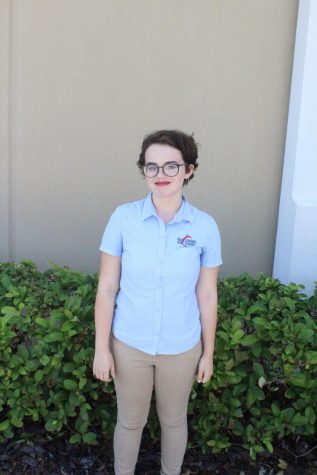Students And Cambridge
Students voice their opinion and experience with Cambridge courses.
Junior, Faith Nicolas, is seen looking over the information on the AICE website.
November 2, 2018
The stress is obvious on students faces as they prepare for their next exam, pencil shavings scattered on their desks and books open.
The Cambridge Advanced International Certificate of Education (AICE) program is a rigorous program that strives to prepare students for their post-secondary education, in Cambridge, England. Since its creation in 1997, it has grown tremendously. Schools internationally have adopted AICE as their accelerated program along with AP and IB.
“It has a global focus largely even through all subjects and it just asks mainly to think critically,” AICE US History and Global Perspectives teacher, Mr. Mark Roberts states. “Cambridge has provided a positive foundation for the students who choose to be a part of it.”
Junior, Tyler Powenski, who is in several Cambridge classes believes that Cambridge is different than other classes in terms of structure.
“For example, in tenth grade, I took European History which went way more in-depth than other classes, yet it only had five topics.” Powenski states. “It can feel a lot less focused like it can be all over the place.”
Cambridge has been compared to AP and IB in terms of material and challenges that students face while taking the courses.
“The skills they teach are roughly the same, it’s advanced level academic writing with analysis and evaluation,” Mrs. Summer Webber states. “They go about it from different angles… Ultimately you are able to get the same college credits from any of them, so in the college world they are viewed the same.”
Being a part of Cambridge presents different qualities and challenges than other classes. Compared to an honors class the specificity of answers can be more demanding in a Cambridge class and only want specific material.
“The analytical side of things, I can ask the same question to both a Cambridge class and a regular class and I can get very different answers just because generally speaking the Cambridge students will take it to a deeper level,” AICE English 4, and General Paper teacher Mrs. Julie Gardieff, states.
For some students, the exams are the most difficult part of the course rather than the actual class itself. The test may ask a question but want a concise developed answer and only give a limited space to provide the answer.
“With the tests you have to think extremely critically and you have to make sure you know absolutely everything. Also, there’s a whole build-up to the test the entire year, so the idea of failing it can make you miserable,” junior, Faith Nicholas, states.
Nicholas is one of many who failed the AICE European History test, she explains she has learned a lot from the experience and is already planning her next steps.
“Despite studying a lot, I should’ve studied more, I could’ve used flash cards or just rewrite the information. Even if you think you know all the information, study more, you never know what they’re going to ask,” says Nicholas.



